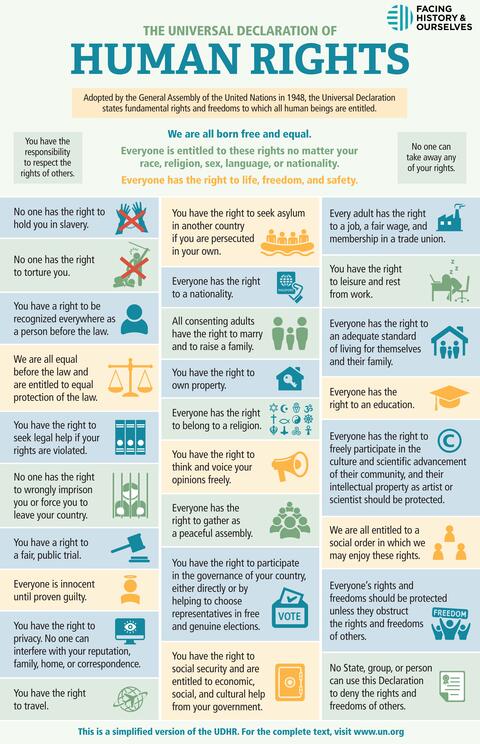

- Compiled by S. Meader

Universal Human Rights
The Universal Declaration of Human Rights (UDHR) is a milestone document in the history of human rights. Drafted by representatives with different legal and cultural backgrounds from all regions of the world, the Declaration was proclaimed by the United Nations General Assembly in Paris on 10 December 1948 (General Assembly resolution 217 A) as a common standard of achievements for all peoples and all nations. It sets out, for the first time, fundamental human rights to be universally protected and it has been translated into over 500 languages. The UDHR is widely recognized as having inspired, and paved the way for, the adoption of more than seventy human rights treaties, applied today on a permanent basis at global and regional levels (all containing references to it in their preambles).
 The United Nations
by
Through its specialized agencies, the UN plays a major role in the nuclear non-proliferation regime, coordinates worldwide research on AIDS, battles illicit drugs and provides massive refugee assistance. At the same time the UN is a seriously flawed institution, an arena of mischief wherein the PLO and radical Arab states seek to delegitimize Israel. It is rampant with waste and mismanagement. During the Reagan administration, Ambassador Williamson began to confront these problems as the United States permanent representative to the UN offices in Vienna and as Assistant Secretary of State for International Organization Affairs in charge of America's UN policy. In the articles collected here, he shows how the US has challenged the UN to live up to the ideals of its Charter.
The United Nations
by
Through its specialized agencies, the UN plays a major role in the nuclear non-proliferation regime, coordinates worldwide research on AIDS, battles illicit drugs and provides massive refugee assistance. At the same time the UN is a seriously flawed institution, an arena of mischief wherein the PLO and radical Arab states seek to delegitimize Israel. It is rampant with waste and mismanagement. During the Reagan administration, Ambassador Williamson began to confront these problems as the United States permanent representative to the UN offices in Vienna and as Assistant Secretary of State for International Organization Affairs in charge of America's UN policy. In the articles collected here, he shows how the US has challenged the UN to live up to the ideals of its Charter.